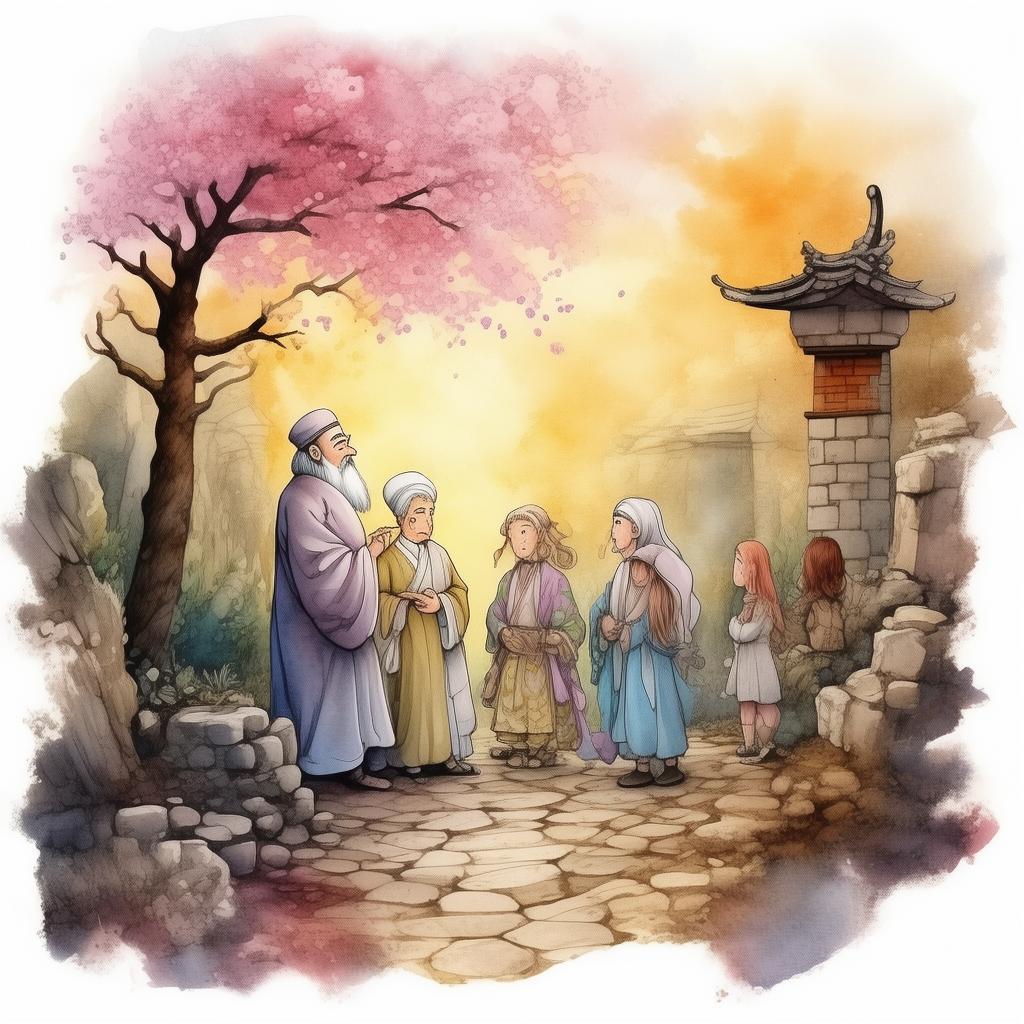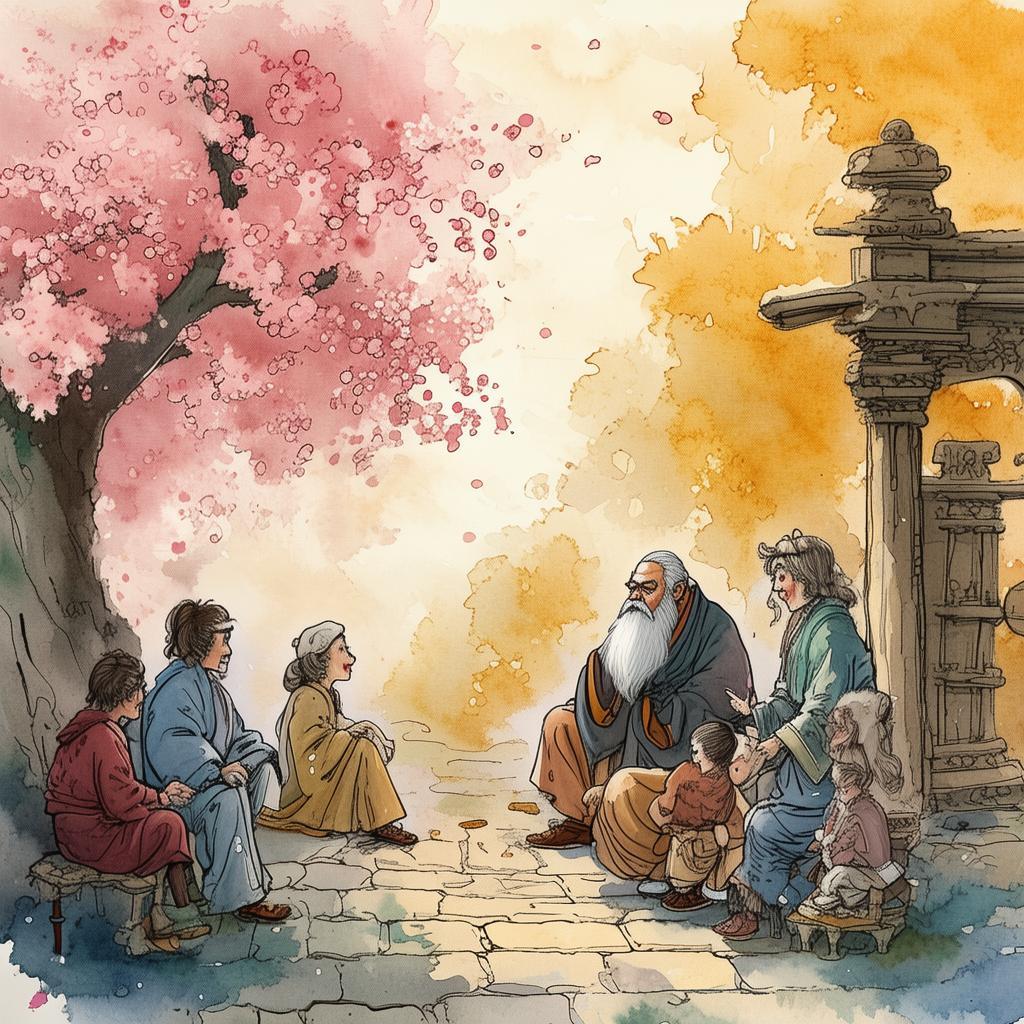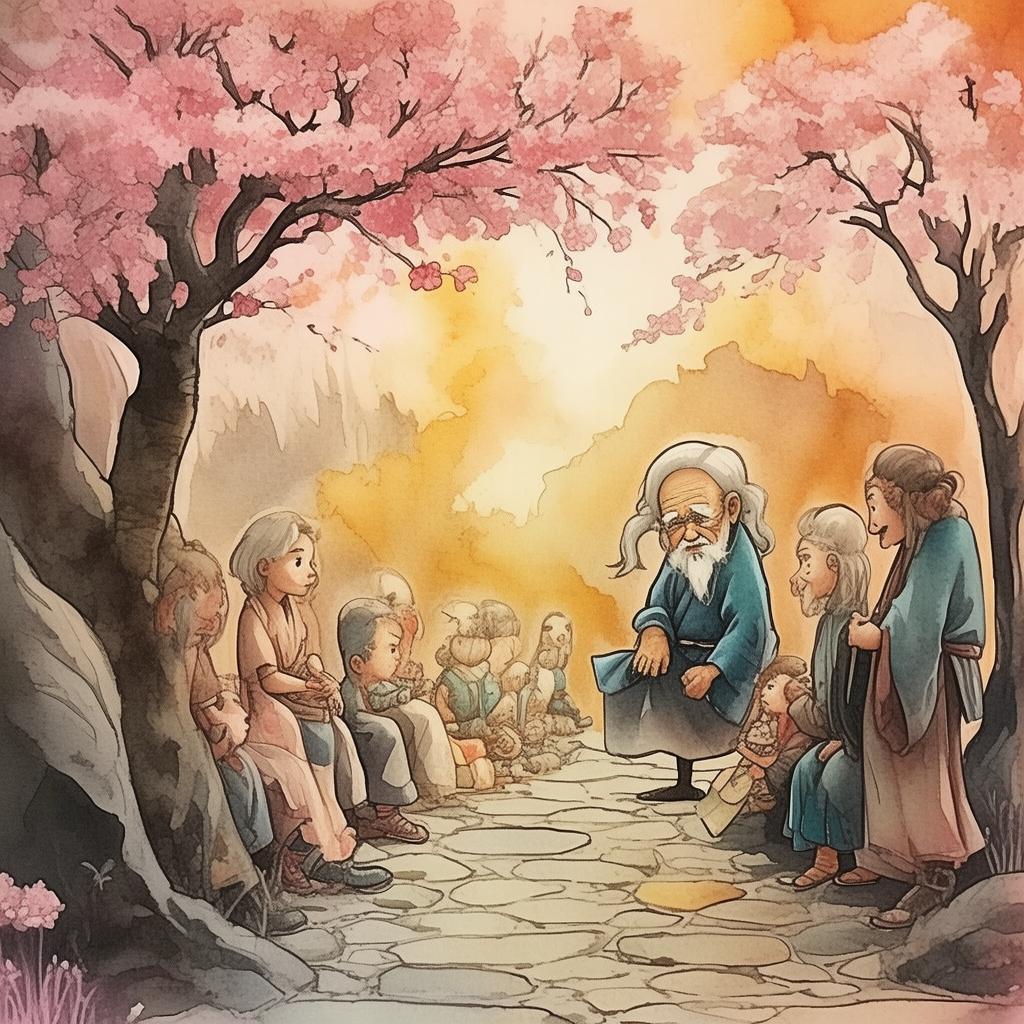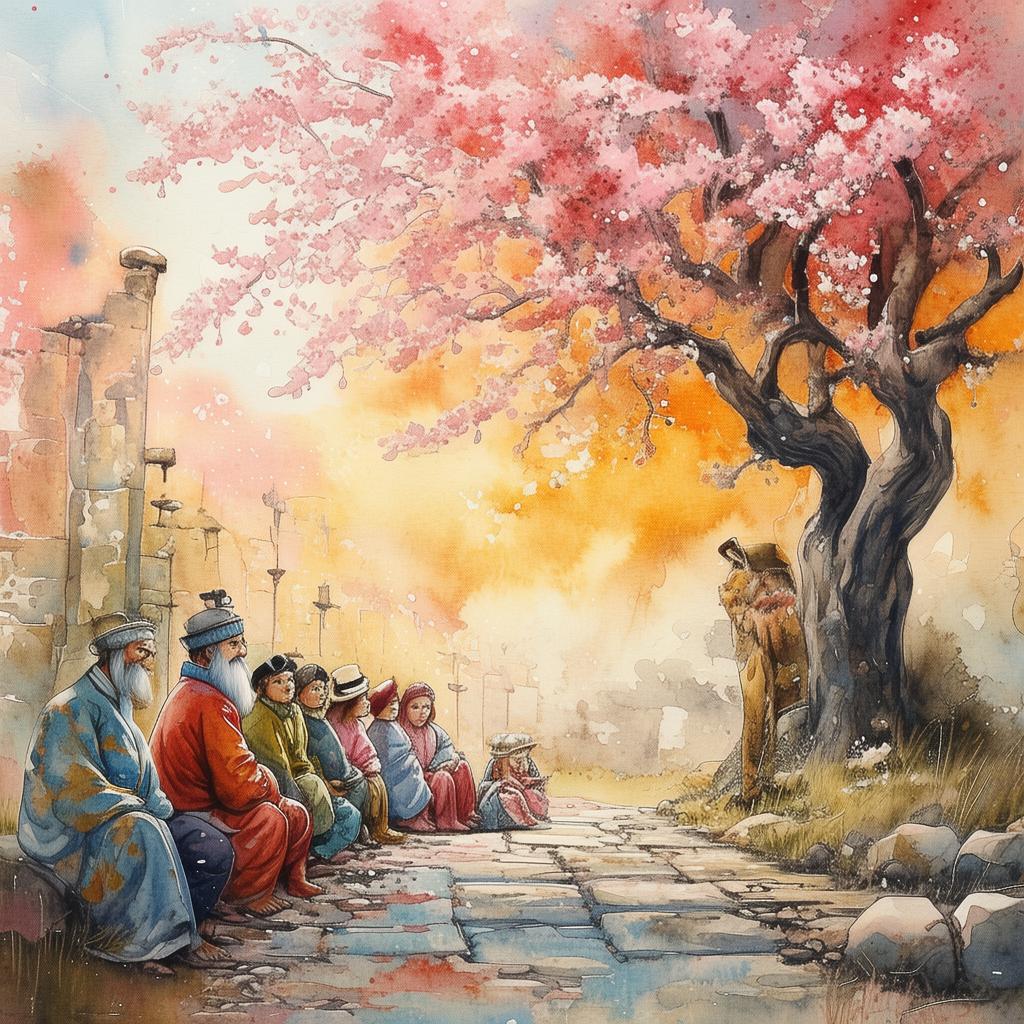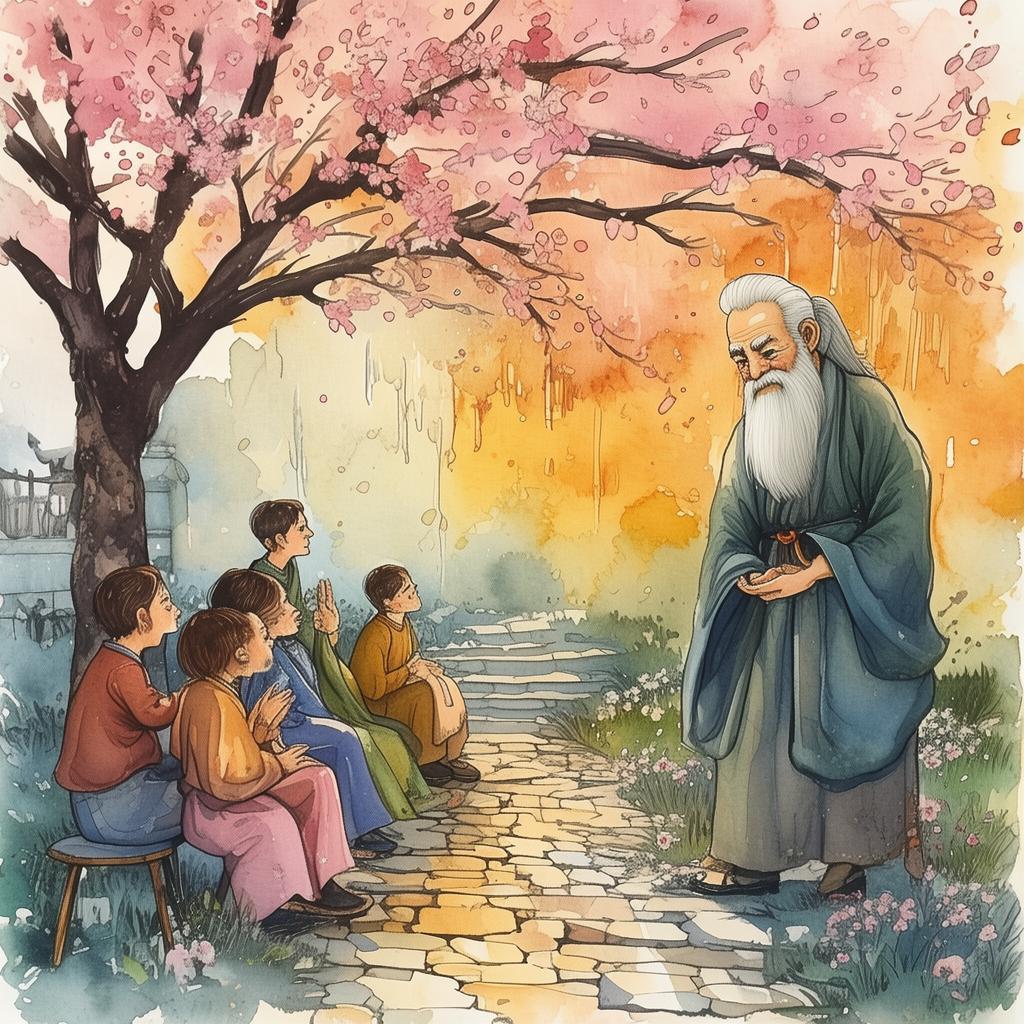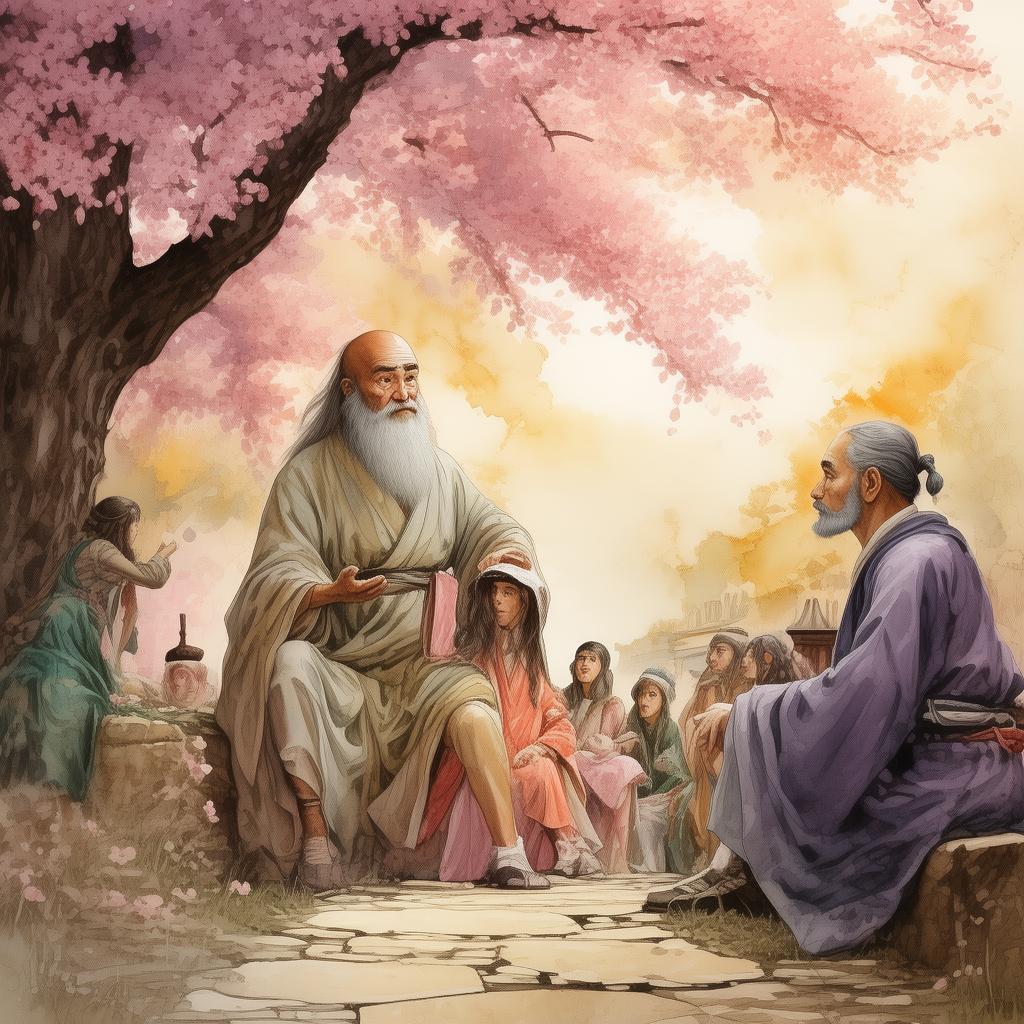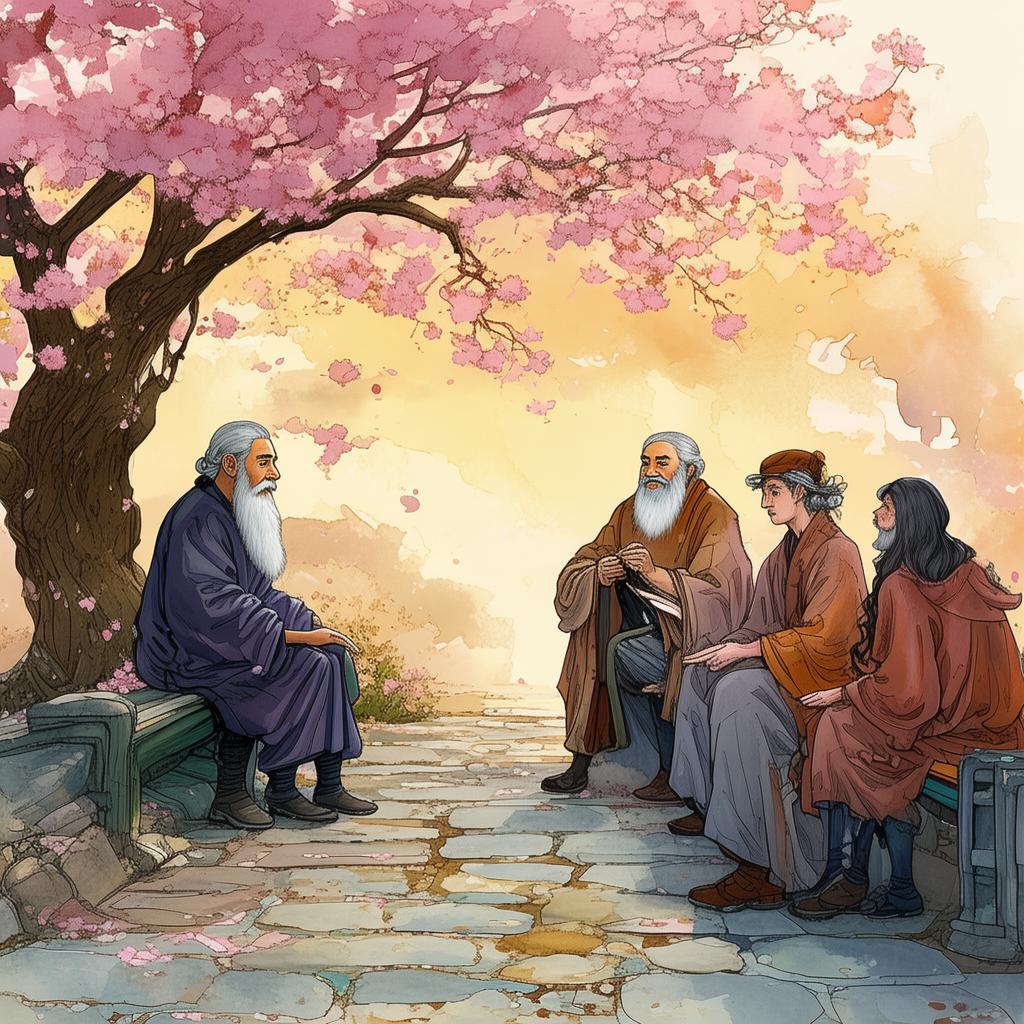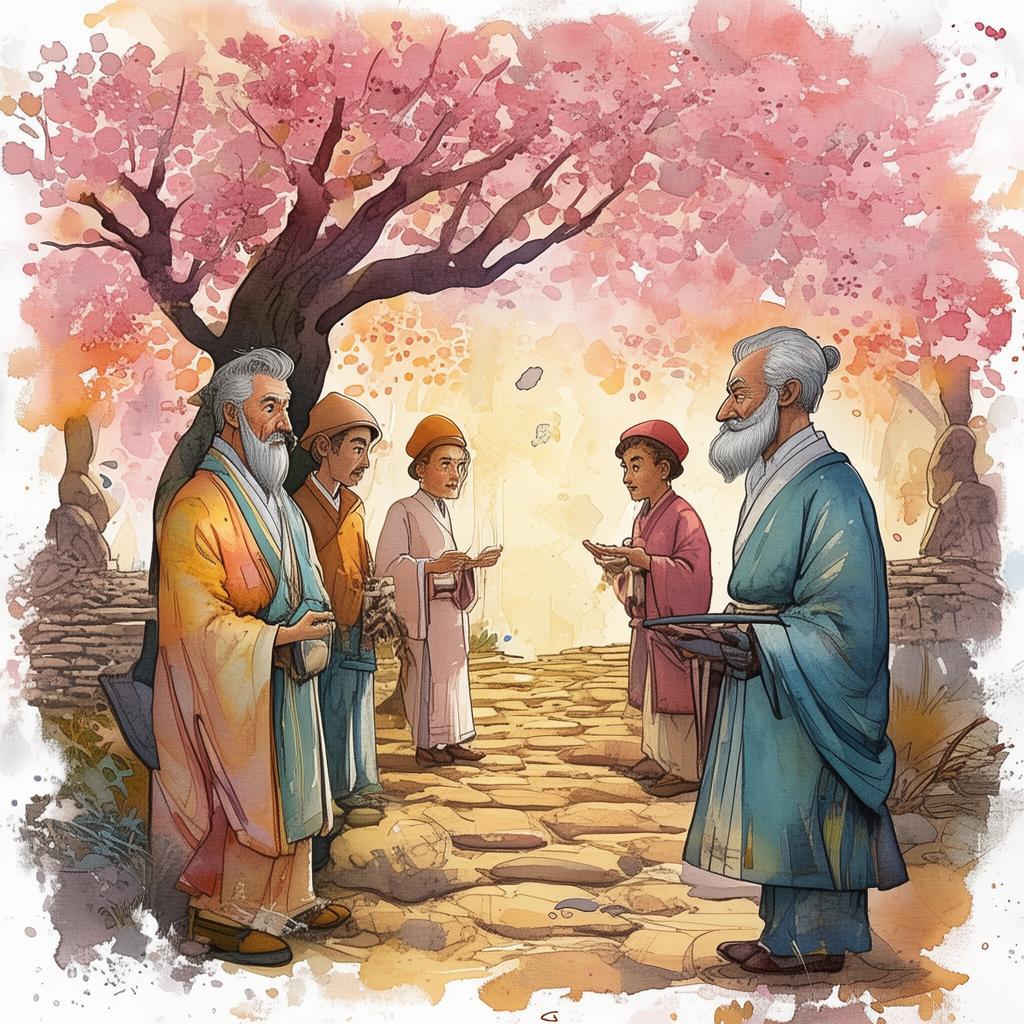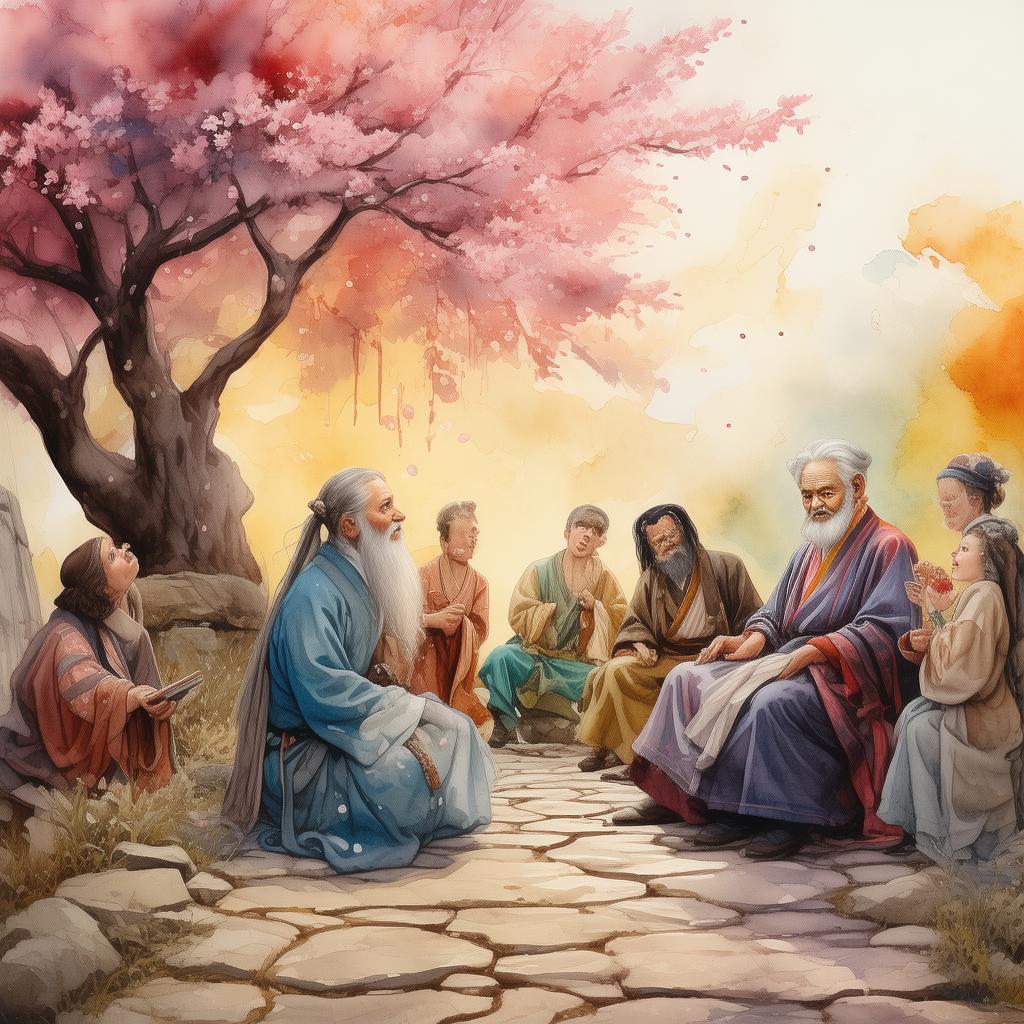Balance of Scholarly Ambition: The Tale of Xiao Ming and the Book of Harmony
In the bustling city of Linyi, there lived a young man named Xiao Ming, a scholar with an insatiable thirst for knowledge. He spent his days in the grand library, poring over ancient scrolls and scrolls of wisdom. His parents, proud of his intellectual prowess, had always encouraged him to pursue his studies with fervor. Yet, as the years passed, Xiao Ming found himself in a quandary: his dedication to his scholarly pursuits was threatening to consume his life.
One day, as Xiao Ming was returning to his study, he stumbled upon a peculiar, dusty book tucked away in the corner of the library, its cover inscribed with the title "The Book of Harmony." Intrigued by its enigmatic title, he decided to take it home and study it at his leisure.
As he delved into the tome, Xiao Ming discovered that the Book of Harmony was not just a collection of wisdom, but a guide to balancing scholarly ambition with the joys of life. It spoke of the ancient philosopher, Master Wu, who had achieved enlightenment not through relentless study, but by understanding the harmony between mind and body, between knowledge and experience.
The Book of Harmony was filled with riddles and parables that Xiao Ming worked through one by one. One particular story stood out to him: it was about a scholar who had spent his entire life in pursuit of knowledge, only to realize that he had neglected the simple pleasures of life. One day, he found himself lying on his deathbed, surrounded by his many books, yet feeling an overwhelming sense of emptiness.
The story moved Xiao Ming deeply. He realized that while knowledge was indeed a powerful tool, it was not the sole purpose of life. He needed to find a balance.
Determined to put the lessons of the Book of Harmony into practice, Xiao Ming began to alter his routine. He set aside time each day for his studies, but also for walking in the serene gardens near his home, for enjoying a meal with his family, and for engaging in the arts. He began to understand that learning could be a part of life, rather than life itself.
One day, Xiao Ming encountered a young woman, Lian, who was equally passionate about the arts. They shared their passions, and soon found themselves spending time together, exploring the world of literature and the beauty of music. Lian introduced Xiao Ming to the joy of creating art, which he had long neglected in his pursuit of scholarly knowledge.
As Xiao Ming's days filled with a blend of study and personal enjoyment, he felt a profound sense of fulfillment. The once-dusty Book of Harmony had become his guiding light, teaching him the importance of balance in life.
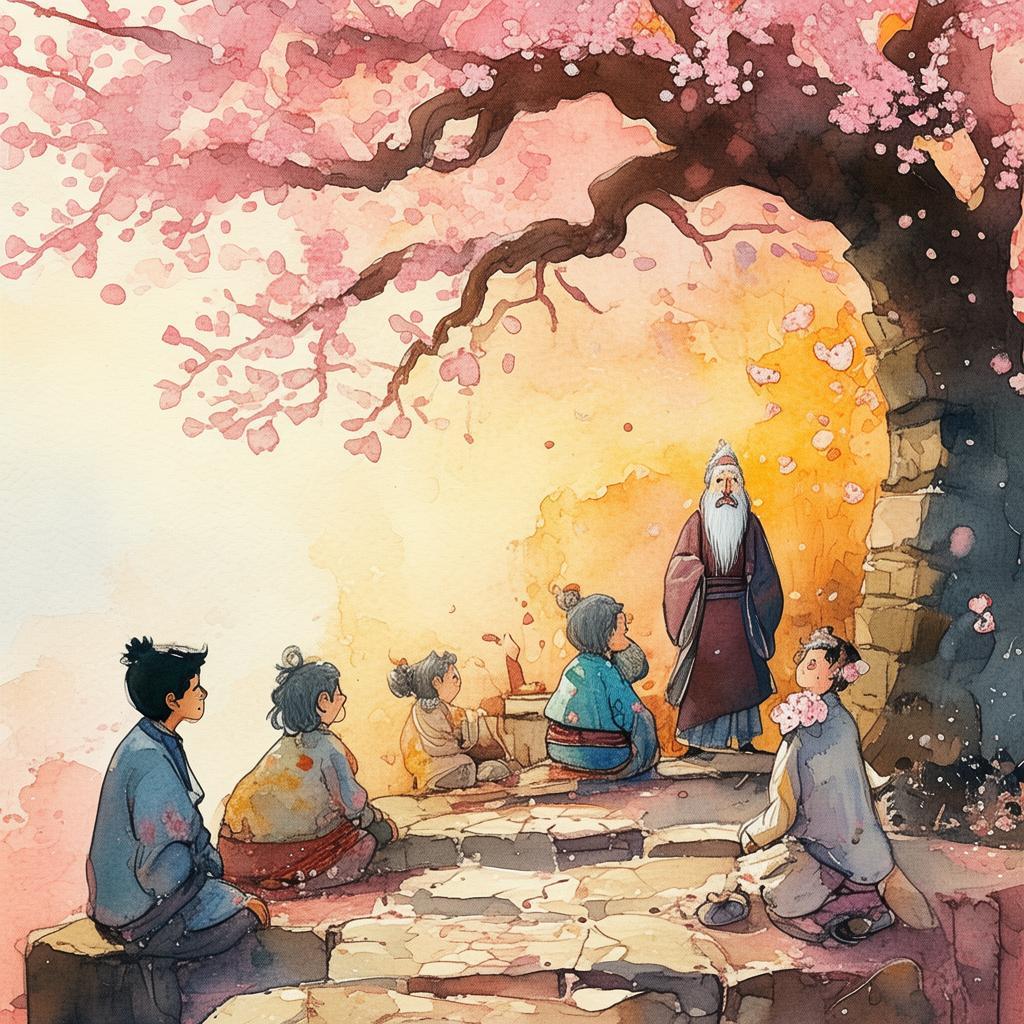
Years passed, and Xiao Ming's reputation as a scholar grew. He was known not only for his vast knowledge but also for his wisdom and balance. People would come to him seeking guidance, and he would share the lessons from the Book of Harmony, urging them to find their own harmony in life.
The tale of Xiao Ming and the Book of Harmony spread far and wide, becoming a legend that would inspire generations of scholars to come. It was a reminder that while knowledge is valuable, it is the pursuit of a balanced life that truly fulfills the human spirit.
In the end, Xiao Ming found the harmony he had been seeking, not in the pursuit of endless knowledge, but in the harmonious blend of study and life.
✨ Original Statement ✨
All articles published on this website (including but not limited to text, images, videos, and other content) are original or authorized for reposting and are protected by relevant laws. Without the explicit written permission of this website, no individual or organization may copy, modify, repost, or use the content for commercial purposes.
If you need to quote or cooperate, please contact this site for authorization. We reserve the right to pursue legal responsibility for any unauthorized use.
Hereby declared.
